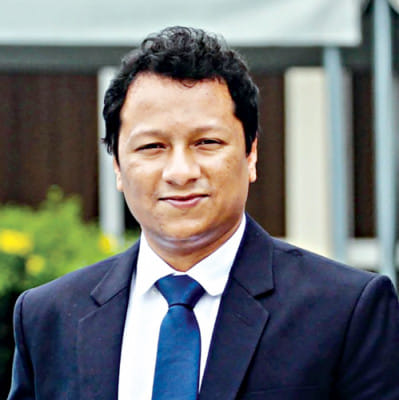Road to Smart Bangladesh

When Prime Minister Sheikh Hasina declared the vision of "Digital Bangladesh", there were very few people who believed it would eventually come true. But after one decade, it is no longer a dream, it's now a reality.
Prime Minister Sheikh Hasina has announced another master plan on December 12, 2022 to take Bangladesh towards the next step, which is "Smart Bangladesh".
"Smart" refers to the use of advanced technologies, such as the internet of things, artificial intelligence, blockchain, big data, robotics, drone technology, 3D printing and other cutting-edge technologies to improve various aspects of society.
The "Smart Bangladesh" ecosystem will stand on four key pillars – "Smart Citizen", "Smart Government", "Smart Society" and "Smart Economy".
The "Smart Citizen" goal will be to empower citizens of Bangladesh with a "digital first" mindset driving campaigns and implementing widespread digital literacy programmes. These citizens will use digital technologies, such as mobile and internet, to access information.
The "Smart Government" should implement 100 per cent paperless offices and hyper personalised service platforms across priority areas like healthcare, education, agriculture, revenue management and public security. Although Bangladesh made a good start of digitalising government services by automating over 2,000 government service, a serious jump is still needed in order to achieve the target of 2041.
"Smart Society" refers to a civilisation that uses technology and innovation to raise the standards of living for its people. Citizens will adopt digital tolerance, ethics and values. A cashless payment ecosystem, "Smart City" and "Smart Grid" will be integral components.
"Smart Economy" is significant considering that Bangladesh plans to make ICT one of its revenue-generating pillars by 2041. It is estimated that by 2041, the overall ICT economy's will be of $50 billion and at least 50 unicorn startups will be dominant in Bangladesh's market.
Although the government's goal of creating a "Smart Bangladesh" by 2041 is a bold decision, its implementation will be a major challenge. The government needs to prepare a concrete masterplan through extensive discussions with relevant stakeholders. It will be best if a taskforce can be established whose primary goal will be to coordinate with relevant stakeholders. To support emerging technology, regulatory frameworks must be promptly modified. There should be policies in place to support and protect technology IP valuation.
Last but not the least, utmost importance and care should be given on development of human resource. Till now, universities have not been able to embed emerging tech in their curriculum. There is still a huge gap between the academia and industry which should be minimised as soon as possible.
In a nutshell it can be said the dream of Bangabandhu Sheikh Mujibur Rahman was to have a country free of poverty, characterised by social and economic fairness and by shared wealth. Continuing from Digital Bangladesh Vision 2021, the Bangladesh government has adopted Vision 2041 with the express goal of eradicating extreme poverty and achieving high-income country status by 2041. It's the action and work of today that will decide how soon we will be able to reach the goal. The government and private industry should work hand in hand to materialise the dream of "Smart Bangladesh".
The author is the managing director of Dream71 Bangladesh and a director of the Bangladesh Association of Software and Information Services.

 For all latest news, follow The Daily Star's Google News channel.
For all latest news, follow The Daily Star's Google News channel. 



Comments